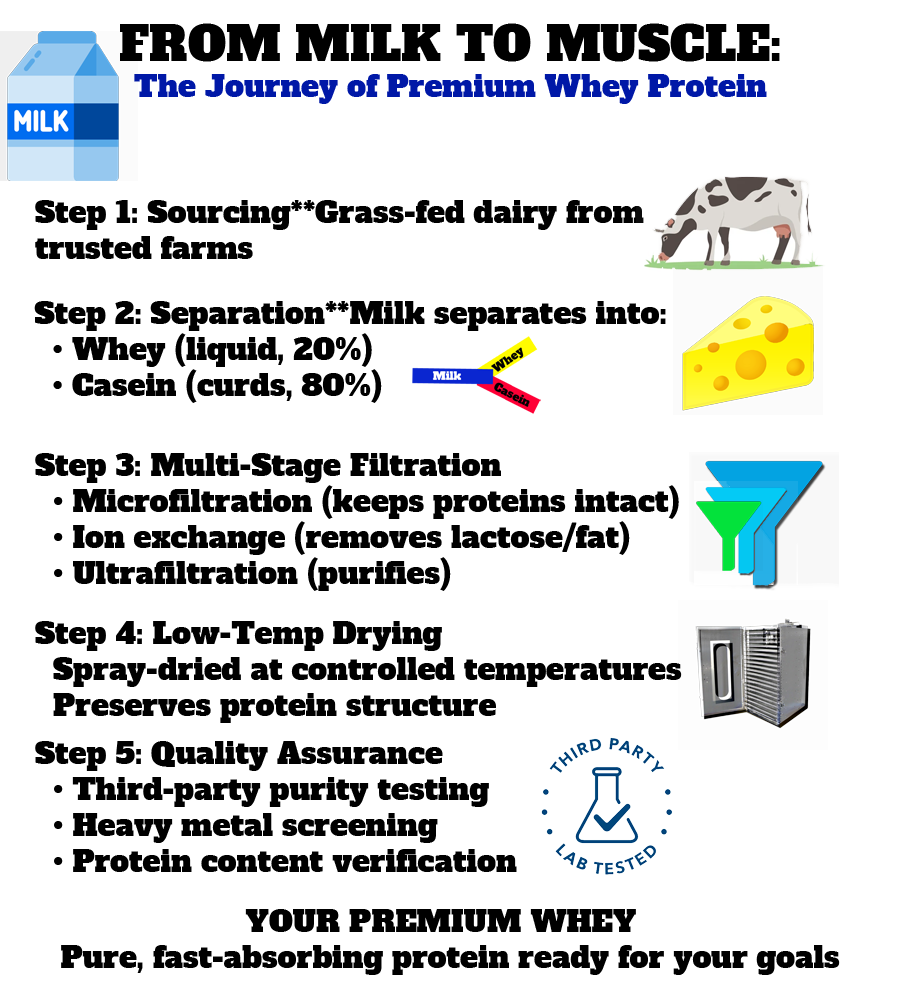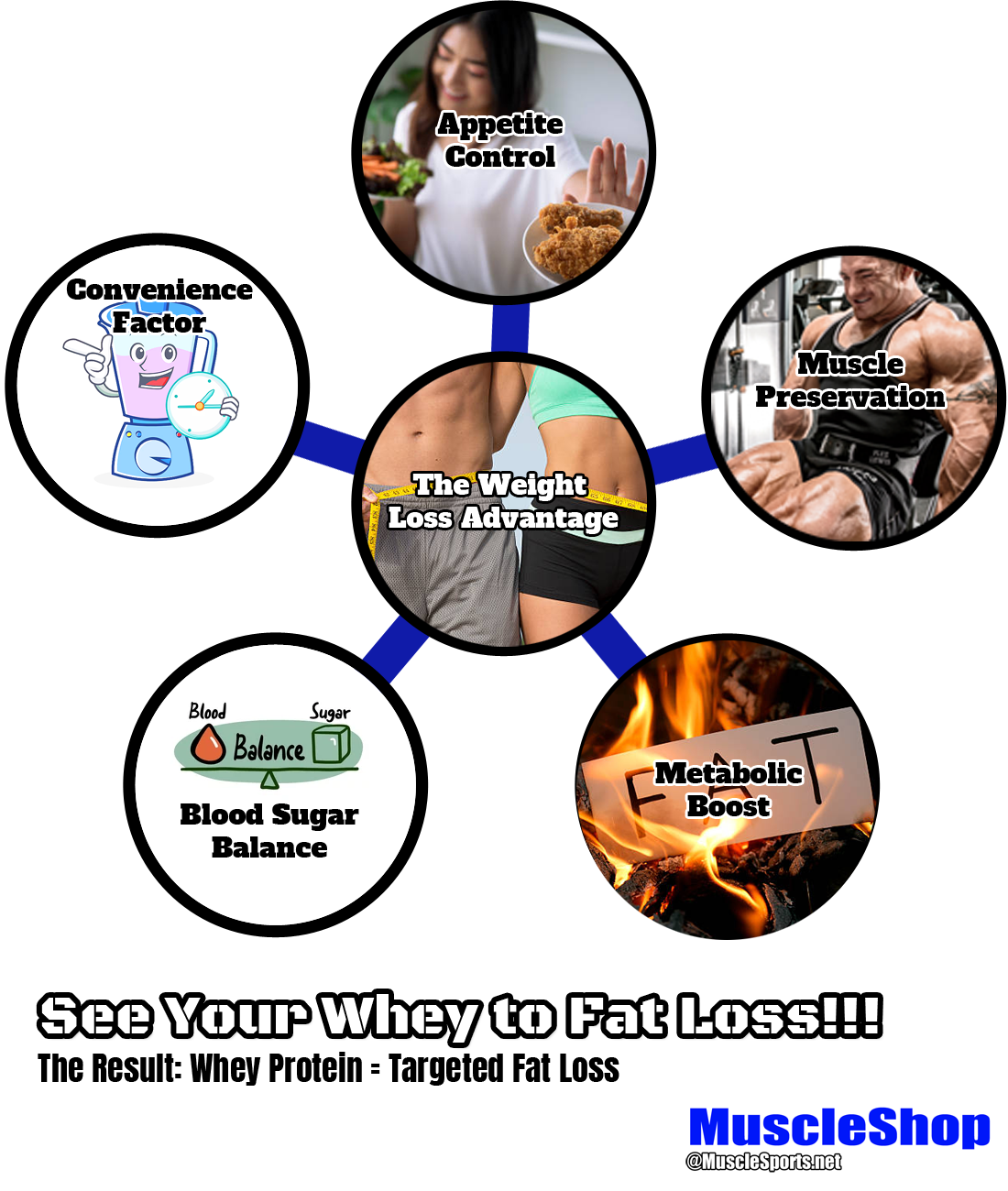CUSTOMER FEEDBACK
 top brands
top brands


Whey protein is a complete, high-quality protein derived from milk. It’s quickly absorbed, rich in essential amino acids, and remains the “Gold Standard” for muscle support, recovery, and overall wellness.
The Science: When milk is processed into cheese, two proteins separate: casein (80%, slow-digesting) and whey (20%, fast-digesting). Whey is filtered, purified, and dried into powder form.
Why It’s Superior: It has the highest biological value (BV) of any protein, meaning your body uses more of it for growth and repair.

| Not all whey is created equal. Here’s a breakdown: | |||||
|---|---|---|---|---|---|
| Type | Processing | Protein % | Carbs/Fat | Speed | Best For |
| Concentrate | Basic filtration | 70-80% | Some lactose/fat | Fast | Budget-friendly daily use |
| Isolate | Further filtered | 90%+ | Minimal/no lactose/fat | Very Fast | Low-carb diets, lactose sensitivity |
| Hydrolyzed | Pre-digested (hydrolyzed) | 90%+ | Minimal | Instant | Maximum speed absorption, easy digestion |
| Native Whey | From fresh milk (not cheese by-product) | 90%+ | Very pure | Fast | Premium quality, minimal processing |
Pro Tip: More isn’t better. Excess protein can stress digestion. Consistency and timing matter most.
Whey is safe for most people. Minor issues (bloating, gas) usually come from lactose intolerance — choose isolate or hydrolyzed if sensitive.
Yes, whey can be a powerful weight-loss tool:

 Increases satiety hormones (GLP-1, PYY)
Increases satiety hormones (GLP-1, PYY) Reduces cravings by 60% in studies
Reduces cravings by 60% in studies Maintains metabolism during calorie deficit
Maintains metabolism during calorie deficit Prevents "skinny fat" transformation
Prevents "skinny fat" transformation High thermic effect (30% of calories burned digesting)
High thermic effect (30% of calories burned digesting) Improves insulin sensitivity
Improves insulin sensitivity Slows carbohydrate absorption
Slows carbohydrate absorption Reduces energy crashes and snack urges
Reduces energy crashes and snack urges Quick, low-calorie meal replacement
Quick, low-calorie meal replacement Portable willpower protection
Portable willpower protectionQ: When’s the best time to take whey?
A: Post-workout (within 60 min), as a meal replacement, or between meals as a snack.
Q: Can I cook with whey protein?
A: Yes! Add to oatmeal, pancakes, or baked goods. Avoid high heat for long periods to preserve nutrients.
Q: Is whey safe for women?
A: Absolutely. Benefits are gender-neutral—supports lean tone, recovery, and overall health.
Q: What’s the difference between “whey” and “mass gainers”?
A: Whey is pure protein. Mass gainers add carbs, fats, and calories for weight gain.
Q: How do I choose a quality brand?
A: What to look for:

Whey Protein Products:
